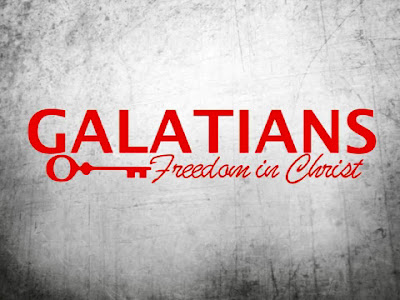Galatians 1:6-10
The Rebuke Begins
The Purpose of the Law: to overcome sin practices until salvation came in Messiah.
See: Galatians 3:19; 2 Timothy 3:14-15
The Opposition: Judaizers
In order for a Christian to truly be right with God, he/she must conform to the Mosaic Law. o Specifically, men must be circumcised.
At the Jerusalem Council (see: Acts 15) a group of Judaizers opposed Paul and Barnabas. Paul made the case that, in Christ, there was no longer any distinction between Jew and Gentile, for God had purified the hearts of the Gentiles by faith.
Paul’s point: To add anything to the completed work that Christ did for salvation is to negate God’s grace.
2 Contemporary Groups similar to Judaizers:
Hebrew Roots Movement and the Roman Catholic Church
Hebrew Roots Movement –
o Jesus said he did not come to abolish the Law but to fulfill it.
o Therefore, followers of Jesus should include the practices of the Law, as Jesus did.Roman Catholic –
o Catholics have always held that the sacraments are necessary for salvation.
o At the Council of Trent in the 16th century, the Roman Catholic Church explicitly denied the idea of salvation by faith alone.
o Vatican II (1962-1965) – “For it is through Christ’s Catholic Church alone, which is the universal help towards salvation, that the fulness of the means of salvation can be obtained.”
o Yet, the Bible is clear...we are not saved by the church or by our works but by God’s grace
– “It is by grace you have been saved, through faith, and this not from yourselves, it is the gift of God, not by works, so that no one can boast.” (Ephesians 2:8-9)
Galatians 1:6-7a – The Rebuke
“I am astonished that you are so quickly deserting the one who called you by the grace of Christ and are turning to a different gospel – which is really no gospel at all.
• “Deserting” – verb tense indicates that the Galatians are in the middle of the process...the final outcome was still in question
Point: Paul’s amazement is that the Galatians are repeating a sin of the past.
Galatians 1:7b – The Charge
Galatians 1:7b – “Evidently some people are throwing you into confusion and are trying to pervert the gospel of Christ.”
2 Purposes of False Teaching:
1. Confusion in the body – “Evidently some people are throwing you into confusion...”
“Confusion” = literally: to stir up or agitate (see: John 5:4)figuratively: to disturb, distress or confuse (see: John 11:33; 1 Peter 3:13-15)
2. Redefining the Gospel – “...and are trying to pervert the gospel of Christ.”
Point: Satan’s plan is to question everything of God...to create doubt or distress.
Galatians 1:8-9 – The Condemnation
“But even if we or an angel from heaven should preach a gospel other than the one we preached to you, let him be eternally condemned! 9As we have already said, so now I say again: If anybody is preaching to you a gospel other than what you accepted, let him be eternally condemned!”
Ways People Pervert the Gospel Today:
Weakening – calling historical events myths or contextualizing truthsDiluting – teaching half-truths and moral relativism instead of moral absolutes.Misrepresenting – ascribing attributes to God and the Gospel that make it more acceptable.Syncretism – blending the Gospel with other religious activitiesFalsifying – flat out mis-teaching of the Bible...usually for personal gain.
Galatians 1:10 – The Motivation
** Paul’s Critics accused him of...
1. ...watering down the Gospel.
a. By omitting the Law as a means of salvation.
2. ...easy “believism”.
a. He did not include the Law as necessary for salvation.
3. ...playing to the crowd to make salvation popular.
a. Paul was allegedly trying to please men and not God.













